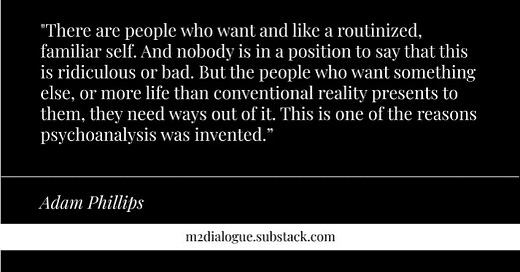In the age of radically accelerating change, I see little value in taking positions along the culturally sanctioned range of the Optimism-Pessimism Spectrum (OPS). I find more value in the work of off-the-spectrum thinkers, whether they are exploring the philosophy of radical optimism or generative pessimism.
In the first episode of the M2D podcast, I discussed radical optimism with my guest Otar Sepper, PhD., a scientist, artist and technologist with experience in the application of Machine Learning (ML) to two industries: algorithmic trading and cosmetics. Otar has previously contributed to two of my published posts: Second-Order Ignorance: (SOI): Learning to See the Problem and Frequently Unasked Question (FUQ) #2: What is the Age of Resonance?
The episode is scheduled for publication on 9/25/2024. Subscribe to receive the link by email.
Changing Our Approach to Change: Getting off the OPS
Beyond the culturally sanctioned range of the OPS, we discover the polarities of radical optimism and generative pessimism. Around these polarities, cultural consensus weakens and ideological pseudo-antagonisms predictably erupt. As a result, dialogue becomes impossible. In this climate, the upcoming podcast episode is a highly exploratory act of radical optimism.
Through my reading and writing about life beyond the OPS, I came across an interview with the British psychoanalyst Adam Phillips. One of his answers here helped me think about the desire to change our approach to change. Responding to a question about John Stuart Mill’s “experiments in living”, Phillips said:
There’s a character in one of Norman Mailer’s novels, who says: “You learn everything fighting your fear.” So, you don’t allow yourself to be dominated by fear. You take risks. You act counter-phobically. You do things you don’t want to do – partly. But also, there can’t be a menu for this. Because everyone has to evolve their sense of what this might mean for them.
But I do think that there are people who want and like a routinized, familiar self. And nobody is in a position to say that this is ridiculous or bad. But the people who want something else, or more life than conventional reality presents to them, they need ways out of it. This is one of the reasons psychoanalysis was invented.
Here, Phillips acknowledges two opposing impulses that I examined with Otar in a wide-ranging 90-minute conversation about the exploitation-exploration trade-off. Below is a brief reflection on why this subject matters.
What’s the problem?
In the stories we tell ourselves about change, we often find ourselves vacillating between the two polarities of the exploit-explore trade-off. This framework encompasses all the ways in which we exploit our current knowledge and resources and explore our environments to find what’s missing.
The problem is that, in our vacillations between the polarities of using what we have and looking for what we need, we often get stuck in self-defeating patterns of over-investment. Getting unstuck requires new approaches to dialogue to which we are paradoxically resistant.
In this episode of the podcast, Otar and I organized these fixations on exploitation and exploration into two types of over-investment. Over-investments in exploitation are associated with dogmatism and a defiant reliance on bad maps. Over-investments in exploration reflect both a defiant optimism about a new cartography but also a failure to act based on existing knowledge. Both types of over-investment can produce highly destructive effects.
In most of the literature about this trade-off, over-investments in the two polarities are typically discussed from a purely computational standpoint. By contrast, Otar and I also examine dialogic and psychological implications.
Warnings
People hopelessly over-invested either in exploitation or exploration may find this material highly disturbing. These people are also most likely to benefit from this podcast. Consume at your own risk. People who appreciate the value of dialogue consume it responsibly.
The thing about dialogue is that you can easily choose the angle of entry, but not the route or the destination. One thing leads to another and before you know it you're talking about things you didn't plan to discuss. In this episode, that's how we ended up talking about psychedelics. Please remember that none of our statements about the food of the gods has been evaluated by the Food and Drug Administration.
Invitations
Be My Guest
I think of M2D, in part, as a post-corporate, post-ideological, post-cynical exploration of the environments we inhabit but do not see. With this orientation, dialogue with beautiful minds is a method of exploration that can radically accelerate the process of learning to see the default settings that lead to sub-optimal choices and avoidable suffering. If you’d like to join this experiment in living, be a guest on one of my podcasts. Please start by filling out this form.
Subscribe
Whether you agree or disagree with what you hear in this podcast episode, I invite you to subscribe to M2 Dialogue.
If you feel indifferent about this material, please come back when your feelings change.




